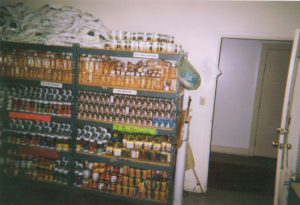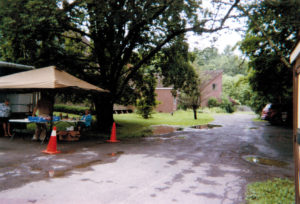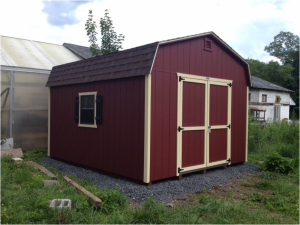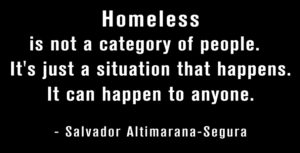A Family Blessing
Families in communities everywhere make their way to a food pantry weekly. ly. And, grandmothers are an essential part of this mix, playing their part in different ways.
Grandmothers care for the grandchildren while their parents work 2 and 3 jobs each.
Because the crowded conditions in many pantries are stressful for some children, grandmothers care for the grandchildren while the mothers shop at a food pantry.
Shopping at a food pantry can take hours depending on the crowds and the lines. People don’t just “drop in” at a food pantry with a shopping list.
One family with 5 children attends the pantry weekly. Grandmother sits in the car and watches the children and Buffy the dog while mother shops. Somehow, grandmother manages to entertain the children as they all wait in the car. The mother stands in the line, first in the the parking lot and later in the building hallway, while she waits her turn to shop in the pantry for 3-4 minutes.
Grandmothers take their grandchildren shopping at a pantry when the parents work. One grandmother I know takes her grandson with her weekly. Little David is always delighted to choose an apple as a treat on each pantry visit.
Children in our country today shop in the pantry weekly with their mothers or grandmothers. Shopping with the family to put food on the table is an outing practiced weekly the world over.
Listening and chatting with these children over the years I’ve observed something: Many of these children have never been in a large grocery store or super market. A food pantry has a product selection of probably 50 to 100 items. A grocery store has a product selection of probably 10,000 to 50,000 items.
BLESS OUR FAMILIES, O LORD.
Whether they are families by blood or circumstances, make them holy.
Make Yourself easy to find Lord. Let us find you in our marriages, our families, our households, our communities and our relationships. Let us find you globally.
Many things in our daily lives seem to conspire to divide us. Help us see beyond the divisions and see a family. Help us embrace one another as a family. Help us love each other as a family .
May families in food pantries everywhere know your presence as they go about their days.
Amen
Thank you for reading this article! Please share it with your favorite social media network. Forward it to your friends, relatives, and neighbors.
Thanks for reading this article! If you’ve been reading posts here or, if you’ve just found this blog, I’m taking this opportunity to tell you that this blog, www.hungerisnotadisease.com and the companion blog, www.reflexologyforthespirit.com have been running for 10 years! Thanks for your patronage!
I hope you are enjoying this journey we are on together. I know the blog posts have travelled the world because their companion books have gone out to over 36 countries.
If you have any questions, or comments, please connect with me on facebook:
Thurman Greco
Have you been trying to purchase a book? That’s been a challenge for a while. BUT, I think we’ve fixed the problem. Please try again. If that doesn’t work, please email me at thurmangreco@gmail.com and I’ll send it right out!
You can find an inclusive title list. Visit www.thurmangreco.com and see what books interest you. Every title is available in both hard copy and ebook.
Preorder “A Healer’s Tarot Memoir”. It should be out in less than 2 months!
The YOUTUBE channel, “Let’s Live with Thurman Greco” is older than the blogs and the website. The YOUTUBE channel has been running with new shows weekly for over 20 years. Some of the earlier shows never made it to YOUTUBE. When we find them, Renee posts them.
Please check the shows out! “Let’s Live with Thurman Greco” is a positive, entertaining series of interviews which I’ve conducted over the years. My guests enjoy being on the show and many ask to return.
One thing we all have in common: we’ve all met up with each other somehow in Woodstock, NY
With blogs, books, classes and sessions, I am not here to change your story. I am here as a conduit for your healing.
Thanks again!
Email me at thurmangreco@gmail.com if you have questions or comments.
No Fixed Address

“No Fixed Address” is dedicated to those in our country with no roof over their heads. See your neighbors, your friends, your relatives, in new ways as they describe their daily lives in their own words.
The people in this new book reveal themselves to be both brave and fearless as they go about their activities: work, laundry, children’s homework, appointments. Mostly they live like the rest of us. They just have no roof over their heads.
“No Fixed Address” is my newest book in the Unworthy Hungry series. It’s easy to read and understand. You won’t be bored, not even for a minute.
I hope you’ll order it today. Get an extra copy for a friend!
This book has an extra surprise. When you get a copy, you’ll be making a donation to a good cause. You’ll be fighting hunger and homelessness.
It doesn’t get much better than that!
Thank you for reading this article!
Please forward it to your preferred social media network.
Thurman Greco


Starving Seniors?
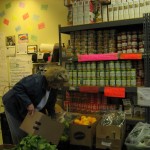 Starving seniors? Is that too harsh a word?
Starving seniors? Is that too harsh a word?
Let’s ratchet it down: hungry.
Or, maybe: food insecure. Yeah, that’s better. It sounds better anyway.
Call it what you want, the event is the same. It’s your grandmother or grandfather (or me…I’m certainly a grandmother) caught in a situation where there’s simply not enough food in the house.
Seniors living on Social Security are finding themselves routinely choose between food and medicine, food and transportation. When they need new clothes, seniors regularly shop at the boutique of the closet.
The issues with seniors and food insecurity are serious because when seniors no longer have the money to buy the food they need for proper nutrition or why they can no longer buy the medicines they need, they become ill and finally end up being cared for by their children or they end up in a nursing home.
I know many stories about:
The older woman in Woodstock living on mashed potatoes.
The older woman in Bearsville who ended up in a nursing home when she was cut off from her pantry take out food and didn’t have the resources or physical ability to get to a grocery store.
The older man who doesn’t have enough money for food and is slowly starving to death.
There is food available for all these people
if they can get to a pantry
if they can connect with a pantry offering take out food
if they can sign up for SNAP (food stamps).
I recently spoke with a retired friend. “Richard, do you get SNAP?”
“No.”
“Why Richard? SNAP is usually easy to get. All you have to do is apply.”
“Well, I’m getting by without it. Let someone else, needier than me, get the money.”
“Richard, think about getting SNAP. This is something you paid for with your taxes. Why leave money on the table?”
I haven’t convinced him yet. However, we’re not through negotiating. As seniors, we’re in a situation where every little bit helps.
The barriers to SNAP for seniors are great. Seniors resist going to a pantry, soup kitchen, getting SNAP until they simply can’t resist any longer. I know the feeling. We grew up as children and went into adulthood feeling that if we worked hard and paid our taxes, we would end up okay. We worked all our lives believing this. And now, there simply isn’t enough.
With this event comes feelings of inadequacy and self blame. “I must have done something wrong. Here I am living hand-to-mouth. I don’t even have enough money for food. What did I do wrong?”
I don’t like a whole generation of people blaming themselves. I feel we’re not totally to blame. The rules have changed. Because we’re retired, we’re not in the rules making game anymore. Retirees are somewhat disempowered. Whatever happened to the Grey Panthers?
 Thank you for reading this article!
Thank you for reading this article!
Please refer it to your preferred social media network.
The new memoir about hunger in America will soon be available! I’ll keep you in the loop.
Thanks again for your support!
Thurman Greco
SNAP
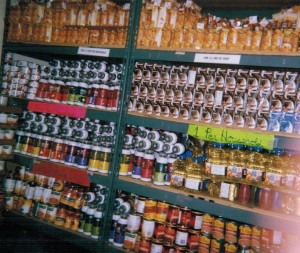 SNAP is important. SNAP will help you if you are having trouble buying groceries.
SNAP is important. SNAP will help you if you are having trouble buying groceries.
SNAP is important for your community, too, because when you are able to get food with SNAP, you will have cash available to help pay your rent or buy gas to get back and forth to work.
Have you, or has someone you know, applied for SNAP? SNAP was formerly known as food stamps.. SNAP is about all that’s left in the way of assistance for people because welfare is shrinking and shrinking and shrinking yet again.
If you are having trouble paying for your groceries, now is a good time to apply. If you’ve applied in the past and were denied, maybe you need to apply again. You may, after all, have answered a question incompletely or incorrectly and were denied this benefit. Try again. You might do better this time around, especially if you or someone in your house is disabled or is a senior with medical expenses.
Some people are reluctant to apply for SNAP because they don’t know if they are eligible. Or, maybe they applied in the past but were denied. Many people don’t know how to apply and are overwhelmed by the application. Some people have never heard of SNAP and think of it as food stamps.
One thing: If you work, you need to know how to meet the work requirements.
Some information is needed to successfully apply for SNAP. This information comes in several categories.
Proof of income is necessary. This comes in the form of pay stubs, social security income information.
An identification is needed. This might be a State ID, passport, birth certificate, etc.
Bills help. This will include medical, heating, water, auto, rent.
Your social security number and the numbers of everyone in your household is necessary.
Dependent Care Costs will help. These include day care costs, child support, attendant for disabled adult.
Contact your local Department of Social Services office to arrange for application assistance. If this doesn’t work for you, contact your Office on Aging or Catholic Charities.
SNAP is an important benefit which will help you if you are having trouble buying groceries.
SNAP is important for your community, too, because when you are able to get food with stamps, you will have cash available to help pay your rent or buy gas to get back and forth to work.
SNAP is important for your household because you’ll be able to get more food with your SNAP card and you won’t be hungry anymore.
This translates to better health.
Thank you for reading this blog post.
Please share this article with your preferred social media network.
Please forward this article to anyone and everyone you know who might be able to have a better life with SNAP.
Thurman Greco
 This book is being published now and will be available soon!
This book is being published now and will be available soon!
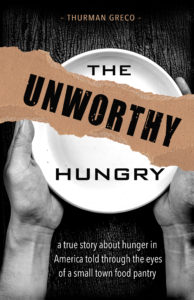 This book will be going to the publisher before the end of the year.
This book will be going to the publisher before the end of the year.
5 Important Things You Need to Know About SNAP
“Hunger and income inequality is probably the single biggest issue facing this country.” – Susan Zimet
When you use SNAP, you don’t just get much needed food for your household. When you use SNAP, you create a ripple effect of money for your community. You can use your SNAP card with pride knowing how your purchases will benefit your area.
Here’s how it works: SNAP is federal money. When you use your SNAP card at a local supermarket, you bring it into your community. The grocer uses the money to benefit the local grocery store. This purchase strengthens local businesses.
Are you in a household with senior/disabled members? If so, you may still qualify for SNAP even if you have a higher income. SNAP works for individuals, couples, and families.
Are you paying mandated child support? If so, this money you use to pay child support is not counted toward your income.
You can work and still qualify for SNAP, stretching your food budget every month. When you use SNAP, you more easily afford the nutritious foods you and your family need.
You can shop at a food pantry and still qualify for SNAP.
SNAP can be an important addition to you and your household budget. Apply for this benefit today to help yourself, your household, and your community. How cool is that?
Thanks for reading this blog.
The story is true. The people are real.
Don’t forget to join the email list.
Please refer this article to your preferred social media network and to anyone you know you may benefit from SNAP but is not using it.
Thurman Greco
The Talk and 7 Convincing Talking Points
Think back to the time when you were a child. Life was less complicated then, for most of us. Occasionally your parents or grandparents had talks with you about life. Your mother, father, grandmother, teacher may have spoken to you about sex, money, God, doing right from wrong, not stealing. These talks were important.
Well, now you are an adult with your own life. Consciously or unconsciously, these talks shaped you and influence you to this day. The reality is that the person who took the time and effort to make you a successful adult may now be in need of a talk. It is entirely possible that this older person is quietly doing without the food necessary to lead a healthy life.
Why is this happening? Well, the answer may be easy. There are simply more days in the month than money. Many seniors in our country have outlived their pensions, savings, ability to hold down a job. The statistics tell us that one senior in seven does not get enough to eat. One way seniors can be helped is with SNAP.
1. 50+ seniors are eligible for SNAP. If you are a senior, please apply for these benefits your taxes have paid for. You worked all of your life, paid your taxes, contributed to the economy. It is now time for you to benefit from all of the contributions you made throughout your life..
2. SNAP helps you pay for the food you need to live a healthy life. When you eat healthier food, you can prevent and control some chronic health issues. This will lower your medical bills.
3. With SNAP you’ll have more $$$ each month.
4. SNAP is a debit card which offers you privacy. If you don’t want anyone to know that you receive SNAP, they won’t.
5. When you use SNAP, you are benefiting your community. You are bringing $$$ into your local economy which helps farmers, grocers, and local businesses.
6. When you receive SNAP, you are not taking $$$ away from someone else who might need it more. There are enough SNAP benefits for everyone.
7. Contact your local Department of Social Services Office to apply for SNAP.
Thank you for reading this blog.
Please refer this article to your preferred social media network. AND, if you know someone who might benefit from reading it, please forward it
Don’t forget to join the email list.
Thurman Greco
3 Important Things We Can Do To End 50+ Hunger
“Hunger and income inequality is probably the single biggest issue facing this country”. – Susan Zimet
Ending hunger is a huge task…so big it’s scary, even. But, it’s okay to be scary. It’s doable. And, besides that, anything that’s really important is probably a little scary. Right?
HOW CAN THIS HAPPEN?
Hunger in general and 50+ Hunger in particular are buried issues. In other words, unless you’re the one shopping at the pantry, you haven’t got much of a clue. If you’re standing in a grocery line with 5 cotton tops, statistics tell us that 1 of them is struggling for $$$ to get the food s/he needs.
Food insecurity happens with 50+ citizens when the retirement income is insufficient to meet day-to-day needs.
Not all 50+ people are retired. It’s not unheard of to see people visiting the pantry, men mostly, who have been fired from jobs they’ve held for many years. After a worker crosses the line to being 50+, getting another job is pretty impossible. So, the challenges are great. What I saw most of them do is desperately figure out how to get some sort of aid: SSI, disability, that will last until the social security kicks in.
I’VE SEEN MY SHARE OF MEN IN THIS STRUGGLE. Some were successful. Others just finally got seriously ill and died. This seems tragic, I know. But, think about it for a moment. What else are they going to do when the $$$ is gone and there is no chance of any more $$$ coming in?
One such pantry shoppers came into the basement of the Woodstock Reformed Church angry. He was one of the angriest men I saw in the pantry the whole time I worked there. Frightened reality covered his face.
“I’m finished” he said. “They fired me today! I’ll never be able to get another job again. I’m too old!”
I didn’t say a word. He didn’t look or act as if he was going to hurt anyone and I felt he needed to release some of his anger. He didn’t try to punch the walls or the other shoppers or the volunteers. And, since the wait was over an hour, I felt he would quiet down before he finished shopping.
HE WAS CORRECT ABOUT 1 THING. He was probably not ever going to get a real job again. I just hoped his unemployment was going to hold out until he could figure out how to get something more permanent:
SSI
Disability
SNAP
It took him a year to calm down. Every time he came to the pantry, I saw the anger. We all just left him alone. It was all we could do for him.
Time passed.
Now, in 2015, I saw him again – calm, maybe at peace with his situation. He lives in his truck, sort of semi homeless, I suppose. He has places to bathe, etc.
He’s a talented musician, this man. He has found places to play and he is looking okay. What more can we all ask for anyway?
Anyone with income that doesn’t include $$$ for food is, in my book, in crisis..
50+ seniors routinely decide between food and transportation, food and medicine, food and clothing.
WHAT CAN WE DO?
One thing we need to do is understand, really understand, what keeps seniors from getting enough healthy food. The 50+ population is growing, not shrinking. we have a continually increasing number of seniors facing
food insecurity
rising food costs
availability of healthy food
shrinking Government funding.
FOOD PANTRY WORKERS DO WHAT THEY CAN. Volunteers in many cases keep people from dying of hunger on the streets. But pantries are, with 50+ hunger, a small effort. Can people seek more important ways to address the problem? Can we develop some long-term and short-term solutions?
WE NEED TO DO 3 THINGS:
UNDERSTAND WHAT STANDS BETWEEN THE 50+ HUNGRY AND FOOD
EDUCATE THE PUBLIC
HELP THE 50+ POPULATION GET THE FOOD
Educating the public has its own challenges. Food is such a hot button issue in our country. People immediately go into denial. They want to believe that the shoppers in the pantry lines are all wealthy and drive Maseratis and Corvettes.
Of course, this will never be true. I’ve been working in the food pantry industry for 10 years and I’ve seen very few free loaders. And, honestly, the free loaders I met all had mental issues.
The number of people shopping in in food pantries who don’t belong is very small.
The number of people who need to shop in food pantries is large.
The number of 50+ people who need to shop in food pantries but don’t is way too large.
WE NEED TO KEEP THE EDUCATIONAL EFFORT GOING. That’s why I work in a food pantry, write this blog, and speak about hunger at pretty much any place I’m invited.
Helping the 50+ population get the food is a challenge. It’s difficult to learn that you worked all your life, paid your taxes, participated in social security, and now …when you need it…it’s not enough.
What happened to our dream?
Was it ever real?
Did we get bilked?
Were we all just kidding ourselves?
OUR PARENTS AND OUR GRANDPARENTS WORKED TO BUILD A NATION. We worked to continue the American Dream. Now, we find that it doesn’t really exist. For some, the belief is that this dream never did exist. For many, the most important thing is to just not let anyone know how bad things are for them.
Hunger in the 50+ community today is where being gay was prior to 2000.
If you can talk just one 50+ senior into getting SNAP, you will be doing a wonderful thing.
Thank you for reading this blog.
Please refer this article to your preferred social media network.
Don’t forget to join the email list.
Thurman Greco.
The Big 3: We get less, pay more, and do without.
WHAT GROCERIES CAN YOU BUY FOR $16?
(The Minium SNAP Allotment)
Prices from Kingston Walmart
– 1 dozen eggs – $1.98
– 1/2 gallon milk – $1.94
– 1 lb. pinto beans – $1.28
– 1 lb. rice – $ .84
– 1 lb. onions – $ .99
– 1 can diced tomatoes – $ .79
– 1 lb ground turkey – $2.98
– 1 can corn – $ .77
– 1 lb. potatoes – $2.97
– 1 can tuna – $ .78
Total = $15.32
I first met Pat last fall when she came to the Reservoir Food Pantry the first time. She’s an older woman, a widow. Her husband died just over a year ago She’s still making her way toward her new life.
“I never dreamed it would be so hard…being alone like this. I didn’t tell my children that I came here. I don’t want them to know the situation.”
While she spoke, she wiped an occasional tear. She moved through the pantry line composed of a group of women, all about her own age. They chose corn, apples, squash, late season greens, onions, potatoes. As the line snaked forward, she turned her attention to the canned goods: beans, soup, fruits, veggies.
Pat hasn’t visited the SNAP (food stamp) office in Kingston yet. For one thing, it’s a good half hour down Route 28. For another, she’s afraid:
the forms,
the humiliation of being unable to survive on her own,
the long wait in a building that she may not even be able to find. And, finally, she’s afraid of the whole process which she finds threatening.
Her financial situation isn’t so far from all the other women in the pantry line. Grocery shopping for the elderly is difficult under the best circumstances. Getting to the grocery store can be challenging for order people – getting around in the parking lot and going up and down the grocery store aisles is no fun anymore. Then, when they can’t find what they need at a price they can afford, they have to maneuver the muddy parking lot and the scary entrance ramp at our pantry.
We haven’t even discussed the packages yet. They’ve got to be gotten home and in the house wherever and whatever that is.
Finally, finding affordable high quality food becomes more difficult as the days go by. As difficult as it is for Pat, she’s one of the lucky ones. Her automobile works.
The combination of a nonworking automobile, bad weather, insufficient $$$ is the makings of a disaster for a senior.
I keep telling everyone who will listen that seniors should get their SNAP card, a list of nearby pantries, and their Medicare card at the same time. So far, nobody has heard.
“Of course not.” I tell myself. “Why should they? We’ve all got gray hair.”
Seniors struggle with the Big 3:
food
housing
medical expenses.
Forget the frills like Kleenex and clothes. As seniors, we get less, pay more, and go without. We decide whether to heat or eat.
Healthcare costs can be devastating, even to a senior on medicare. Once a person comes down with cancer or other major disease, the pocketbook empties pretty fast.
There is a real pressure to feed the rising tide of hungry at every pantry. We receive questionnaires periodically from different agencies wanting to know how often we run out of food. How does “weekly” sound?
The Big 3 for pantries include:
high unemployment,
widespread hunger
deep cuts in social spending programs.
Every pantry is different. Some feed anyone who needs food.
Others are arbitrary and biased when it comes to deciding who can or cannot receive food.
Yet others require paper work which cuts eliminates the homeless entirely.
There are too many agencies with too many people standing in line for too little food. No Food Bank office can oversee or supervise the selection process.
At Reservoir Food Pantry, we serve a 3-day-supply of food with a large dash of dignity to all who come.
The lines and crowds outside pantries can easily convince any onlookers that our nation has a food problem.
Thank you for reading this blog/book.
Please share this article with your preferred social media network.
I hope you found this article helpful. Please leave your comments below and check out our other posts.
Don’t forget to join the email list.
Peace and food for all.
Thurman Greco



